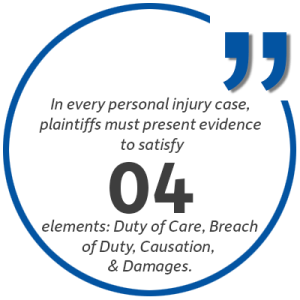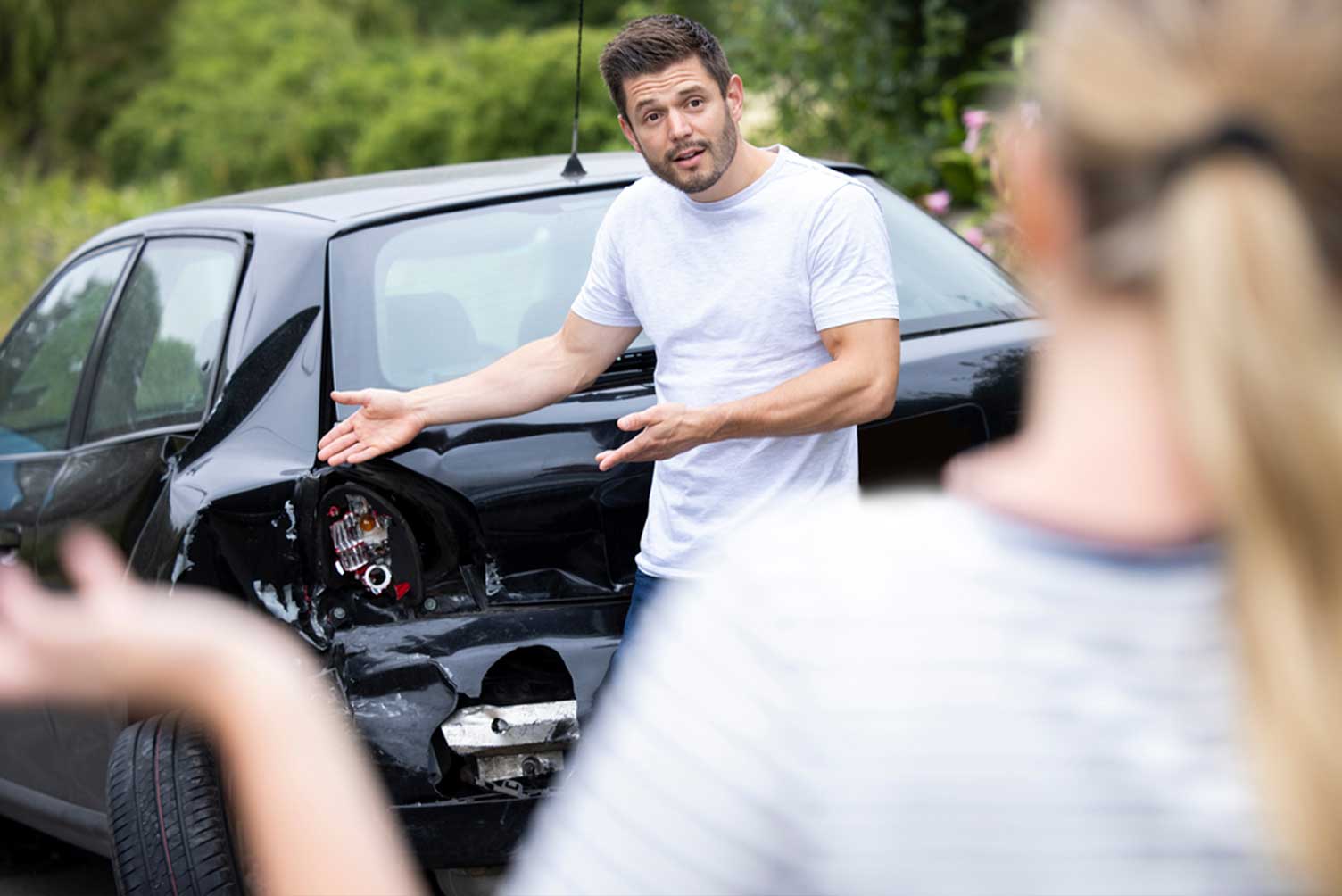In the aftermath of a car accident, seeking medical care and contacting a highly qualified personal injury attorney are crucial. This legal advisor will clarify your rights and options. They will evaluate your case and identify whose negligence caused your injuries.
How Does Indiana Define Negligence?
Recovering monetary damages through a personal injury lawsuit can be complex and overwhelming. The cause of your injuries, the extent of your injuries, and the types of damages you seek can all play a role in how your case unfolds.
In every personal injury case, plaintiffs must present evidence to satisfy the following elements:

- Duty of Care: The law states that we each have a duty (or responsibility) to do everything we can to avoid harming others.
- Breach of Duty: Once you’ve established that the person had a duty of care, you must prove they did not uphold it. A breach of duty is considered negligence.
- Causation: Causation is one of the most crucial aspects of your case. You must prove that the breach of duty was the direct cause of your accident.
- Damages: Your attorney must also prove that the person’s negligence caused an accident that harmed you emotionally, physically, and financially.
How Do You Prove Negligence in a Car Accident in Indiana?

Solid evidence is the foundation of a personal injury lawsuit’s success. Indiana law sets the standard for what constitutes negligence, and it’s your attorney’s responsibility to collect evidence that meets that standard.
In Indiana, the plaintiff must demonstrate, via a preponderance of the evidence, that their injury and subsequent damages are due to the defendant’s negligent actions. Acting quickly and thoroughly is essential. Defendants often have the backing of insurance companies, which work hard to uncover evidence that challenges the plaintiff’s account.
Evidence your attorney will collect to prove your case may include:
- Police Reports: Official reports filed by law enforcement officers at the accident scene document essential information about the circumstances of the crash, including statements from drivers and witnesses.
- Photographs and Videos: Images can provide proof of road conditions, vehicle damage, and the positions of vehicles involved.
- Eyewitness Statements: Individuals who witnessed the accident can offer perspectives on how the collision occurred, conditions, and any contributing factors they noticed.
- Expert Testimony: Testimony from accident reconstruction specialists, medical professionals, or other experts explains complex technical aspects of the accident and assesses factors like speed, braking, and visibility.
- Medical Records: Documentation of injuries sustained in the accident and medical treatment received can support claims of harm caused by another party’s negligence.
- Vehicle Maintenance Records: Records indicating the maintenance history of involved vehicles may reveal issues such as faulty brakes or other mechanical failures that could have contributed to the accident.
- Cellphone, GPS, and Traffic Signal Logs: Digital data can provide additional context regarding drivers’ actions and locations before the collision.
Crossen’s experienced Indiana personal injury attorneys will help you gather evidence, build a case proving negligence, and secure the best possible outcome for your case.
Indiana’s Comparative Fault Laws
In Indiana, it’s common for the opposing side’s lawyer or insurance representative to suggest the accident was your fault. The other driver may still owe you damages even if you are partially responsible for the accident.
According to Indiana’s comparative fault statute, any compensation you receive will be adjusted based on your degree of fault. For example, if you’re deemed 30 percent responsible for the accident, you will receive 70 percent of the calculated damages.
To receive the maximum possible compensation, your car accident lawyer will gather and present proof to argue that the other driver bears complete liability.
How a Lawyer Can Help In a Car Accident Injury Case
In Indiana, a car accident lawyer can help you file your lawsuit swiftly and build a solid legal foundation for your negligence claim. They can also explore your comparative fault and determine whether your case is strong enough to proceed legally.
The right personal injury lawyer can:
- File all necessary legal documents.
- Gather forensic evidence
- Interview eyewitnesses who can testify to how your injuries occurred.
- Mediate on your behalf in all settlement negotiations
- Present your case in court
Injured Because of Someone’s Negligent Actions? We Can Help
Dealing with a lawsuit following an accident can be overwhelming. Instead of trying to do it alone, contact Crossen Law Firm and let us build your case while you focus on feeling better.
We are prepared to support you regardless of the nature of the negligence—be it a hit-and-run, a sideswipe, a pedestrian mishap, or a multi-vehicle collision.
At Crossen Law Firm, we will do whatever it takes to get the compensation you deserve. Call 317-401-8626 today or reach out online for a free case evaluation.

 317-401-8626
317-401-8626 
.jpg)